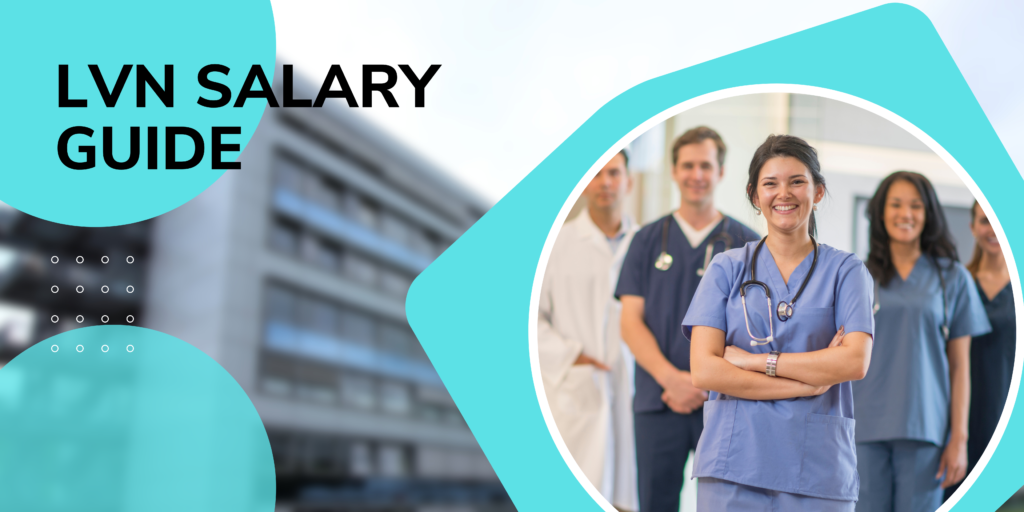As ageing populations and chronic conditions increase, registered nurses (RN) will only grow in relevance over the coming years. With the RN yearly salary sitting at $77,600 and a projected employment growth rate of 6% (between 2021 to 2031), the future for RNs looks to be a promising one.
Do not expect every healthcare facility to pay you $77,600 right out the gate, however. Your pay in practice ultimately depends on a number of factors and circumstances.
This salary guide will go over everything you need to know about RN pay, as of December 2022. Do note that all these numbers are subject to change.
RN Salary Range
How much does an RN make starting out, really? RN nurses’ salary per hour sits at around $37.31.
However, it is extremely unlikely for nurses starting out to make this amount. Like with any other job, income for HCPs has a wide range determined by several key factors.
Education
Higher levels of nursing education usually equate to more experience, knowledge and top-quality training. Because of this, hospitals will offer you higher salaries and more varied job opportunities (both clinical and administrative.)
Below are the average RN salaries for each educational level, according to Payscale’s user base.
| Speciality |
Associate’s Degree in Nursing (ADN) |
Bachelor of Science in Nursing (BSN) |
Master of Science in Nursing (MSN) |
Doctor of Nursing Practice (DNP) |
| Salary |
$74,000 |
$91,000 |
$100,000 |
$109,000 |
At the bare minimum, becoming an RN requires an Associate’s Degree in Nursing (ADN). While Associate’s Programs are faster (around 3 years) and cheaper than their counterparts, they are accordingly paid less on average. Though RNs are higher than LPNs technically, some Licensed Practical Nurses may outearn you at this level.
BSN nurses go through a more extensive 4-year program that equips them with more significant theoretical and practical nursing skills. In addition to more clinical opportunities, BSN nurses can qualify for well-paying administrative positions with sufficient experience.
Two-year MSN programs are the minimum requirement for Advanced Practice Registered Nursing (ARPN) roles. Between nurse practitioners, nurse anaesthetists and nurse midwives, APRNs are the highest-level clinical positions in nursing. These nurses are afforded the best salaries and additional autonomy, depending on their state.
DNP is a newer terminal nursing degree and is not a strict requirement for APRN roles as of now. It is still worth considering, as it provides training for nurses looking to take on high-level administrative and managerial duties.
Location
Different states pay nurses differently. Where you live will hugely influence how much you can earn, as an RN.
Below are the current highest-paying nursing states, according to the BLS:
● California: $124,000
● Hawaii: $106,530
● Oregon: $98,630
● District of Columbia: $98,540
● Alaska: $97,230
Remember that the raw median salary is only part of the puzzle. Employment level determines the difficulty level of finding a nursing job in that area.
With that in mind, these are the states with the highest employment level:
● California: 324,400
● Texas: 217,630
● New York: 188,300
● Florida: 187,920
● Pennsylvania: 149,270
Cost-of-Living
With the highest employment level and median salary, California appears to be the nurse-friendliest state in the nation. The highest income tax in the nation and expensive cost of living must be considered, however.
Your RN nurse salary per hour does not exist in a vacuum. It must be considered alongside cost-of-living before you accept a cross-state job and relocate.
We recommend this cost of living calculator, but there are a host of other resources available online.
Experience
In Payscale’s database, entry-level nurses with at least 1 year of experience earn around $99k while those with 20+ years can make as much as $198,000 annually. The RN starting salary per hour is naturally lower than a veteran’s hourly rate. Though the sample is small, it reflects the gap in salary between new and veteran nurses.
How much an RN makes starting out does not compare to a nurse with more years under their belt. Because of their deeper knowledge and more developed skills in the space, experienced nurses will earn more than their rookie counterparts.
Specialization and Role
Nurses can find work in a variety of different industries. Per the BLS, these are the current highest-paying nursing sectors and their mean salaries:
● Government Facilities: $85,970
● Hospitals: $78,070
● Ambulatory care centres: $76,700
● Nursing homes: $72,420
● Education: $72,420
Certain jobs are also more sought after than others, such as APRNs. Certified Nurse Anesthetists ($203,105), Nurse Practitioners ($119,387) and Nurse Midwives ($117,856) earn significantly more than their RN counterparts, because of their specialized skills and highly-demanded services.










